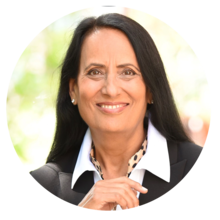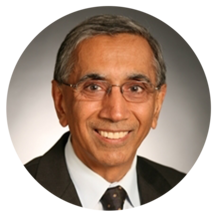About this Presentation
Defining the importance and scope of complexity and uncertainty are discussed first. Citing the views of Professor Herbert Simon and linking them to the general approach of TOC, especially regarding the question of 'should we strive to make our decisions optimal?' come next. A critical realization is the distinction between the way decisions are made by an individual for himself/herself and by the same individual on behalf of an organization. A critical question is how to deal with decisions in complex situations? This is where the TOC tools, like the cloud and the cause-and-effect trees could become handy, especially under the umbrella of focusing on the few truly significant elements. Then the troubling question arises on how to deal with uncertainty. When uncertainty comes on top of significant complexity are we truly in a worse state? The answer and mainly the arguments that the combination actually simplifies the decision-making process might be a surprise. The key direction for the solution has to define the supporting information elements required for making good decisions. About this series: Being able to make good decisions is a requirement of any manager and leader. In this series Eli Schragenheim (the other Eli) wishes to think aloud on how TOC guides us to be better decision makers. The most interesting question to be dealt in the series is what 'hard decisions' are and how to make them 'not-too-hard decisions'? There are two different categories of causes for the difficulty to arrive to a clear decision: complexity and uncertainty. Complexity is nicely handled by TOC through focusing and outlining the cause-and-effect relationships of the most critical elements. In itself this is already a valuable addition to the work of Herbert Simon, another influential figure on management. Uncertainty is another element where TOC has provided certain solutions for some specific cases, but, yet, does not provide a generic way to systematically deal with uncertainty.
What Will You Learn
To help you get the most value from this session, we’ve highlighted a few key points. These takeaways capture the main ideas and practical insights from the presentation, making it easier for you to review, reflect, and apply what you’ve learned.

Decision making is a complex process that involves dealing with uncertainty and assessing value.
There is a significant difference in how individuals make decisions for themselves versus how they make decisions on behalf of an organization.
While individuals tend to be satisficers in their private lives, seeking good enough outcomes, they often strive to be optimizers in an organizational setting, seeking the best possible outcomes.
Instructor(s)
Eli Schragenheim

Ms Alka Wadhwa
Alka Wadhwa is an experienced consultant and process improvement expert with over 24 years of expertise in the Theory of Constraints (TOC), Lean Six Sigma, and organizational performance optimization. She has successfully led projects in healthcare, financial services, and manufacturing, driving significant improvements such as a 67% boost in hospital operations and a 140% increase in outpatient visits.
Previously, Alka Wadhwa spent 17+ years at GE Global Research Center, where she led initiatives to enhance various GE businesses through advanced technologies, process redesign, and system optimization. Founder of Better Solutions Consulting, LLC, she specializes in using TOC, Six Sigma, and data analytics to streamline operations and build high-performance teams.
Her work has earned her multiple accolades, including the Empire State Award of Excellence in healthcare.

Dr Gary Wadhwa
Dr. Gary Wadhwa is a Board Certified Oral & Maxillofacial Surgeon with extensive experience in the field. He completed his Oral & Maxillofacial Surgery training at Montefiore Hospital, Albert Einstein College of Medicine in Bronx, NY, and has served as an Attending at prestigious institutions like St. Peters Hospitals, Ellis Hospital, and Beth Israel Hospital in NY. With a career spanning over two decades, he was the former CEO and President of a group specialty practice in NY from 1994 to 2015. Dr. Wadhwa holds an MBA from UT at Knoxville, TN, and has undergone additional training in System Dynamics at MIT, Health System Management at Harvard Business School, and Entrepreneurship and healthcare innovations at Columbia Business School. Committed to expanding access to Oral & Maxillofacial Surgery care, he is currently engaged in a meaningful project to provide healthcare services to underserved populations in inner city and rural areas through non-profit Community Health Centers.
